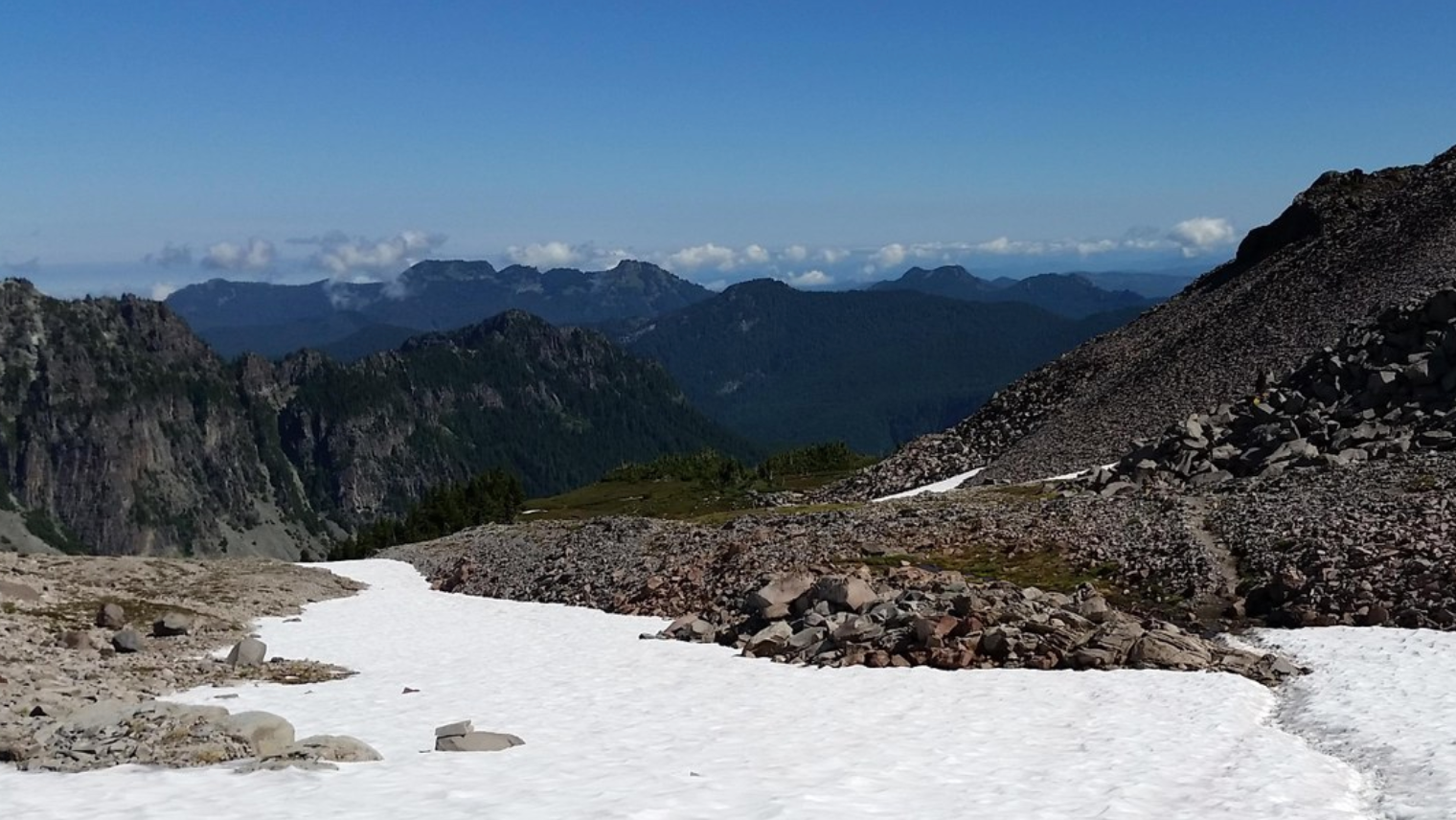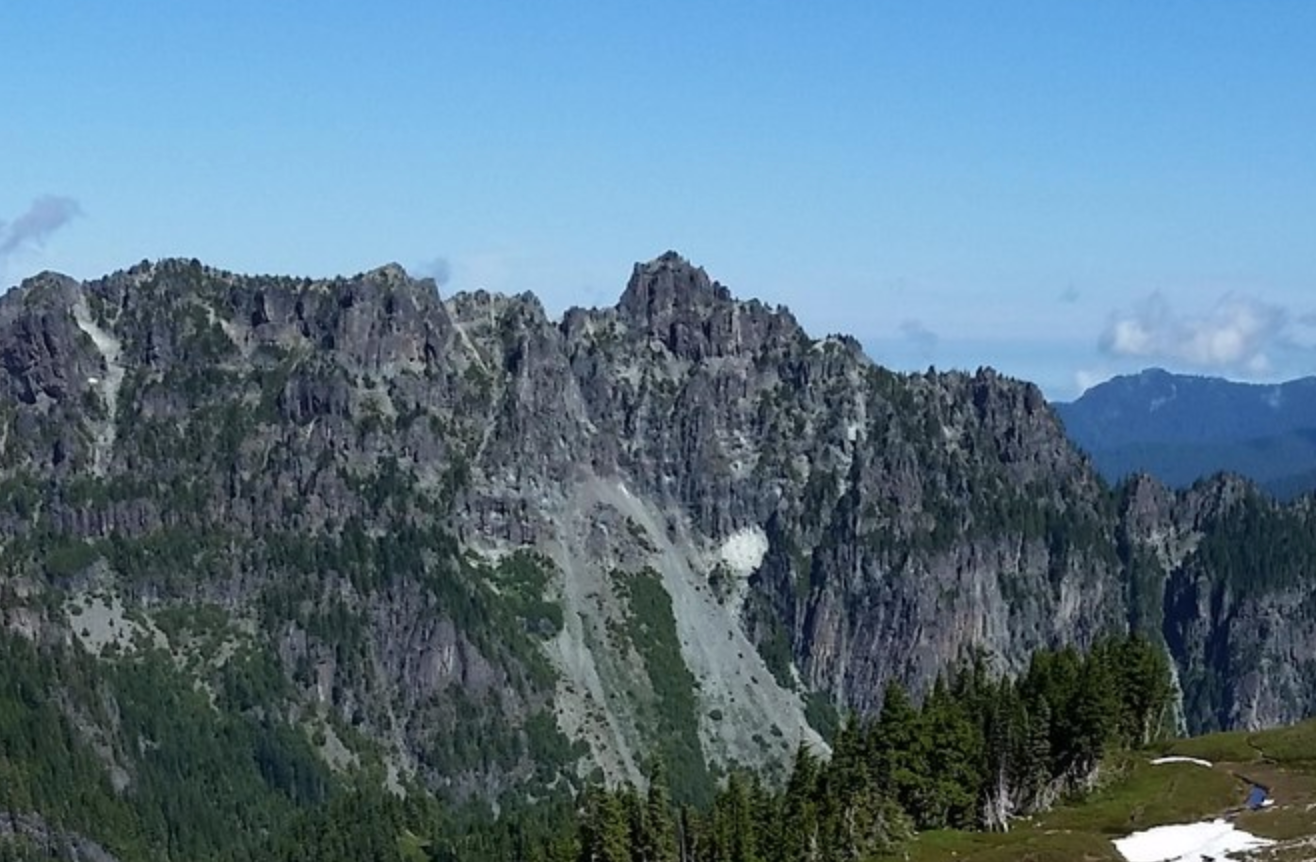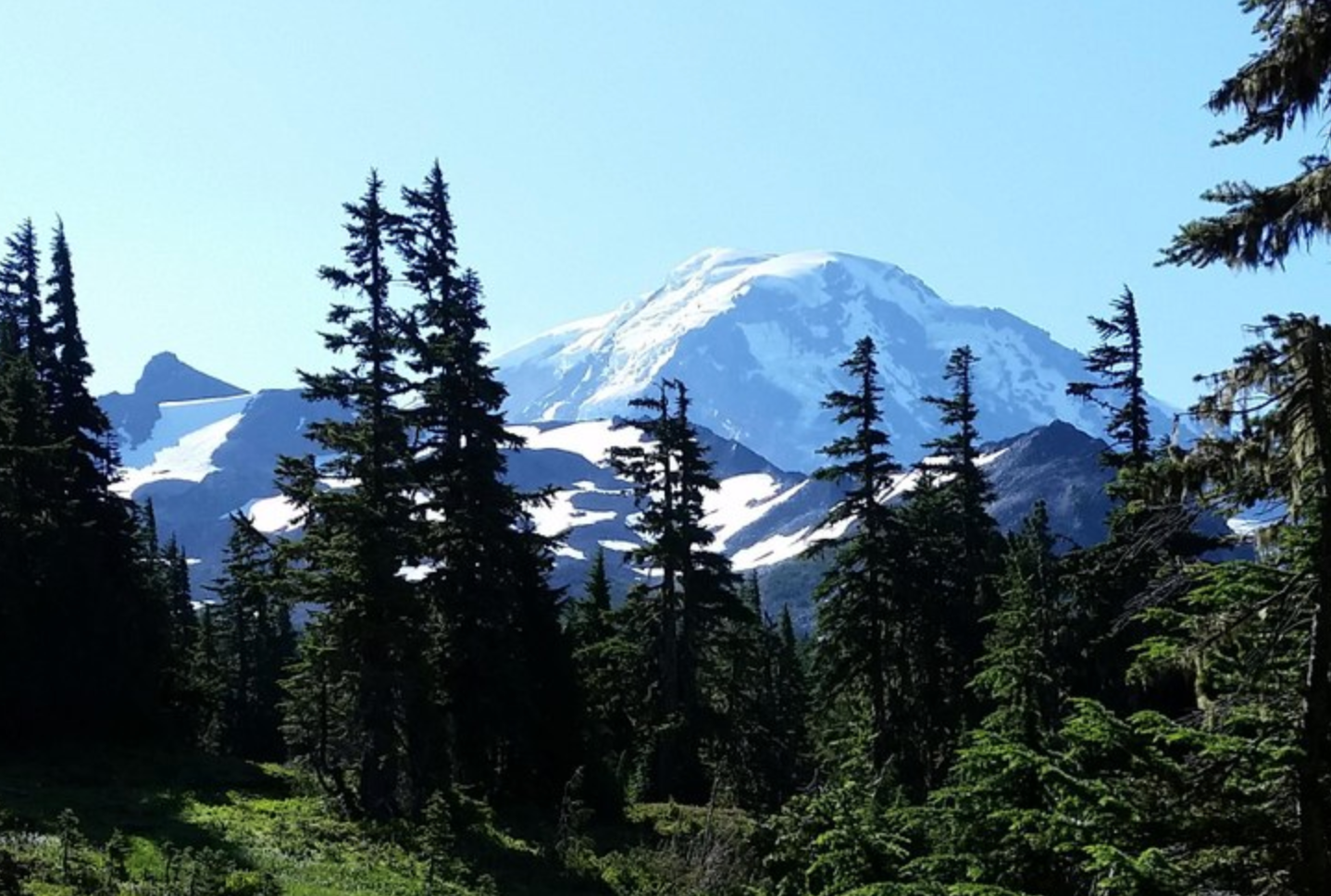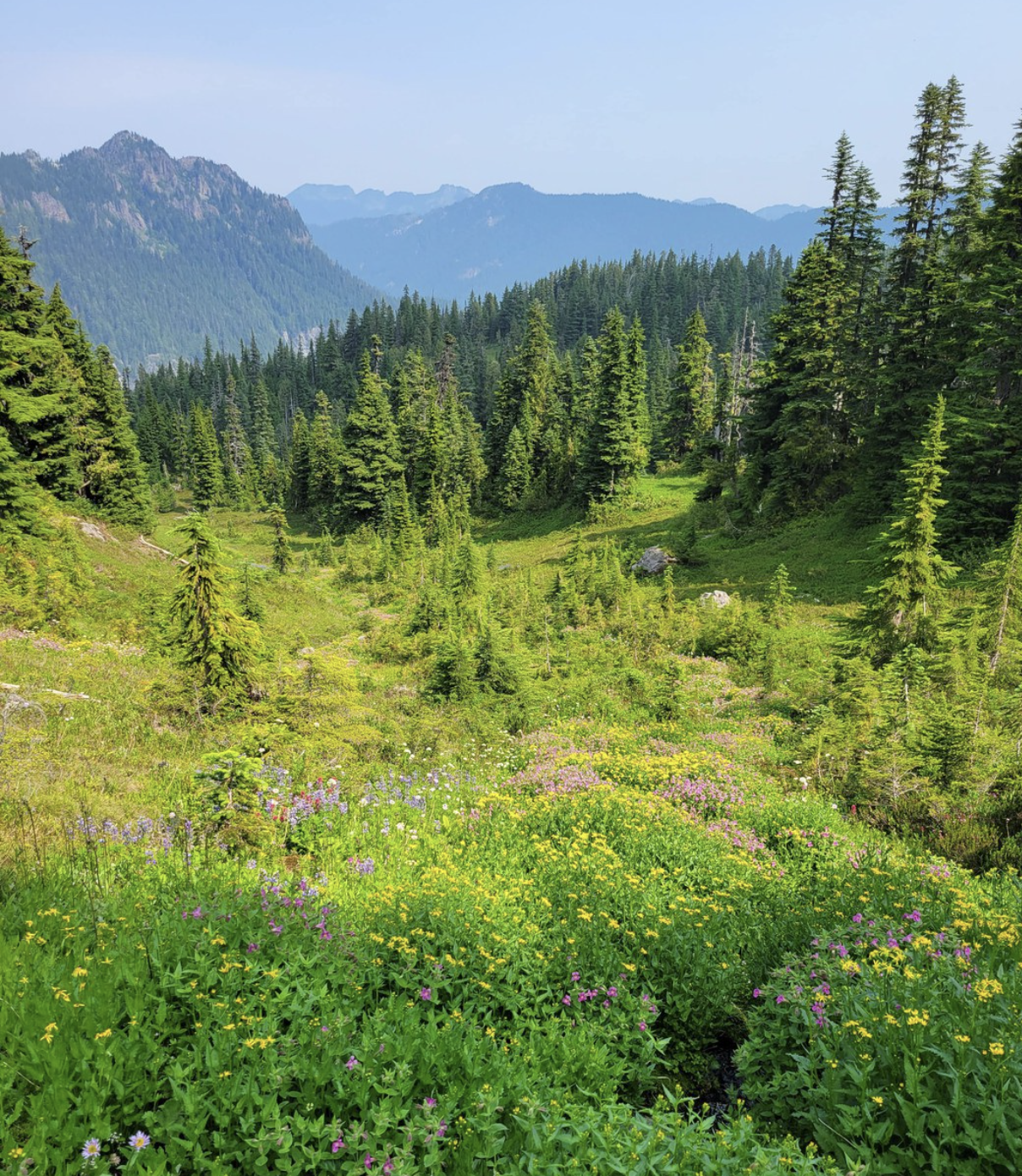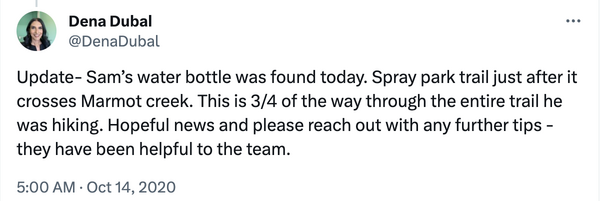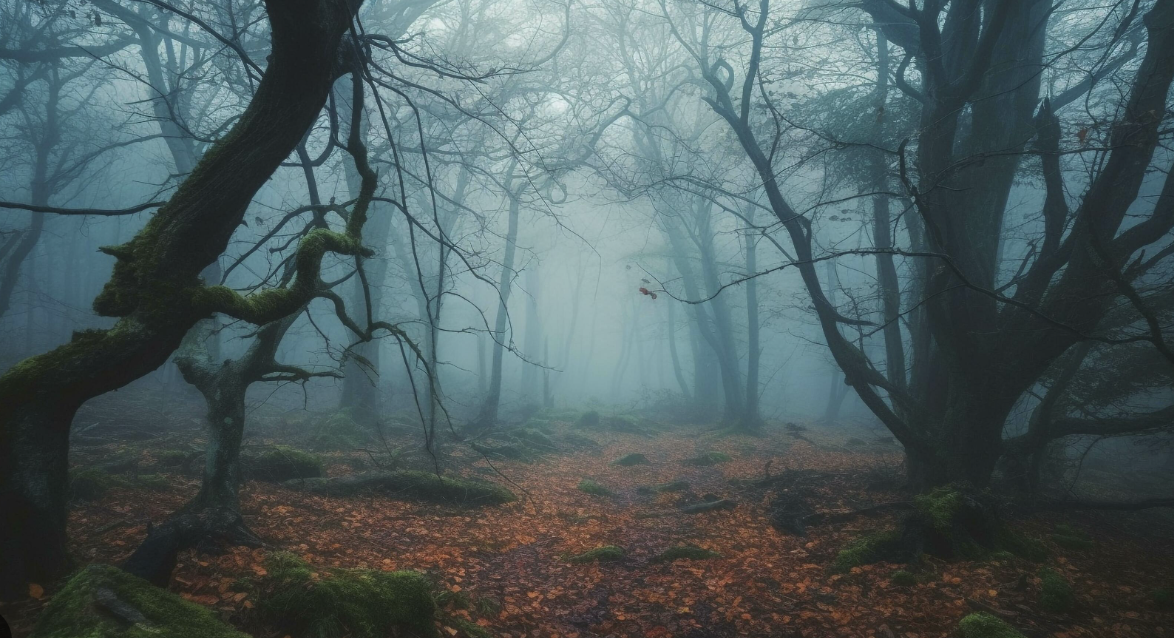
Mysterious Stories Blog
Strange, disturbing and mysterious stories from the outdoors
The baffling disappearance of the anthropologist Sam Dubal on Mt. Rainier
Sam B Dubal, disappeared October 9, 2020, Mt. Rainier National Park, Washington.
Revised and expanded November 2023
Dr. Sam Dubal, 33, left for Mt. Rainier National Park on Friday, October 9, 2020, for a solo hike and was supposed to return the next day. He was spotted that day on the Mother Mountain Loop trail near Lake Mowich in the Park. Sam was reported missing on October 12 after he didn't return home.
He was well equipped for the overnight hike, with a tent, a sleeping bag, snow gear, rain gear, a cellphone, and a charger. Sam was also an experienced hiker under challenging conditions. After an extensive search, Sam was unable to be located.
Mt. Rainier is considered one of North America’s most dangerous mountains due to its high chance of volcanic eruption. Still, it has also had a heavy toll of hiking deaths, with many visitors dying on its icy slopes because of accidents, misadventures, foul play or reasons unknown.
As of late 2024, the only clue was a water bottle found near the Loop trail in October 2023. Despite many searches in the park, no other sign of Sam has been located. The nature of this disappearance is very puzzling, as he was experienced, and the Mother Mountain trail is not difficult nor dangerous.
Sam Dubal
Where is Mount Rainier?
Mount Rainier, with a 14,411-foot summit, is also known as Tahoma or Tacoma, and it is a large active stratovolcano in the Cascade Range of the Pacific Northwest. It is located in Mount Rainier National Park, about 59 miles (95 km) south-southeast of Seattle. It is the highest mountain in the U.S. state of Washington and the Cascade Range. The mountain is considered one of the most dangerous volcanoes in the world due to its high chance of an imminent eruption.
The Mother Mountain Loop trail
The Mother Mountain Loop trail is a popular route in the northwest corner of Mount Rainier National Park, either as a day hike, an overnight (permits required) or a trail run.
The Washington Trails Association states:
“From Puyallup, drive east for 13 miles on Highway 410 to the small town of Buckley. Turn right onto Highway 165 and continue through Carbonado. You're looking for Mowich Lake Road, beyond the Carbon River Gorge bridge, right outside town. Turn right onto Mowich Lake Road and follow it about 17 miles to its end. Note that this road is dirt and can be rough. Consider bringing a high-clearance vehicle. The trailhead is on the left side of the road, near Mowich Lake.”
“From the Mowich Lake Campground, walk alongside the southeast side of the lake, passing a small shelter before turning away from the lake and heading towards Knapsack Pass, 1.2 miles from the trailhead. Along the way to Knapsack Pass, you'll climb gradually and pass footpaths leading to Fay Peak and First Mother Mountain.
Descending out of Knapsack pass, meander through open meadows and pass more footpaths, leading to Mount Pleasant and a network of trails through Spray Park.
Though the trail here leads you around Spray Park, you'll get to hike right through Mist Park and Seattle Parks. Make time to enjoy the flowers and scenery here, especially if you're visiting in the spring.
After the parks, the trail descends to Cataract Valley Camp and on past a turnoff for the Carbon River Camp (permits required for both). Shortly past the Carbon River camp turnoff, you'll cross the Carbon River and link up with the Wonderland Trail briefly.
Turn left onto the Wonderland and hike for 1.1 miles to another junction, this one with the Northern Loop Trail. Turn left again, staying on the Wonderland, cross the Carbon River (twice!) in half a mile, and then parallel the river along a trail at the base of a hillside for 1.7 miles to a junction where a right turn would take you to Ipsut Creek campground.
Stay on the Wonderland here for 3.4 miles, walking along a river valley and then climbing up to Ipsut Pass. In the past, stay on the Wonderland (a right turn here would take you to Tolmie Peak). From the pass, it's another 0.9 miles downhill to Mowich Lake and the trailhead.”
Who was Assistant Professor Sam Dubal?
Sam Dubal with sisters Dena and Veena Dubal
Sam Dubal, M.D., Ph.D. ’15 was an avid hiker who had travelled around the U.S. and the Himalayas in Nepal. He was a Stanford graduate who attended medical school at Harvard and received his Ph.D. in medical anthropology from UC Berkeley in 2018. An anthropologist is a person engaged in studying aspects of humans within past and present societies.
During his time in the joint medical anthropology program, Dubal went on to do fieldwork in Uganda concerning the Lord’s Resistance Army, a militant Ugandan group infamous for war crimes. This work would later lead to him writing a book in February 2018 that critiques the concept of humanity, “Against Humanity: Lessons from the Lord’s Resistance Army.”
“Gunya is a woman in her late twenties. Soldiers of the Lord’s Resistance Army (LRA) abducted her when she was eleven years old and forcefully conscripted her into the rebel ranks. Gunya spent a little over a decade with the rebels before deserting. While there, she gave birth to a son with Onen, an LRA soldier. Though abducted, she expresses her continued support for the LRA and their tactics, admitting that she sometimes thinks of going back to the lum [bush] when life becomes hard as a civilian at home.
This is not a book about crimes against humanity. Rather, it is an indictment of the very idea of humanity, the concept that lies at the heart of human rights and humanitarian missions. “
He started teaching at the University of Washington’s anthropology department in June 2020 and was an Assistant Professor. University of Washington anthropology and global health professor James Pfeiffer said, “He was the kind of scholar and public intellectual we need in the world right now. We felt extremely lucky that he had decided to come to work with us and be part of our faculty.”
According to Nancy Scheper-Hughes Ph.D. ’76, Chancellor’s Professor Emerita in UC Berkeley’s Anthropology Department, “Sam was a trailblazer. He struggled to find and imagine a better path for collective ‘goodness’ instead of employing the colonialist concept of ‘humanity.’”
With Scheper-Hughes, Dubal contributed to the birth of a new field: Radical Medicine. Seth Holmes, Associate Professor of public health and medical anthropology at UC Berkeley, shared that Dubal envisioned and co-founded Rad Med, an inclusive collective at the Berkeley Center for Social Medicine. Said Holmes, “Sam convened scholars, clinicians, students, and patients to work together and imagine different forms and practices of medicine.”
UCSF professor of humanities and social sciences, Vincanne Adams, Ph.D. ’87, recalled, “Sam was fearless in his willingness to question authority and the conventional wisdom about how to be both a moral intellectual and of use to those most burdened by neglect and structural discrimination in this world.”
Sam’s sister Dena said he had an uncompromising moral compass and a staunch commitment to pursuing justice and anti-racism in medicine. “How can someone be so unbeholden to anyone, challenging ideas in ways that are revolutionary, and yet remain so deeply beloved by everyone? It is rare to see those qualities together...and yet that was Sam.”
UC Berkeley anthropology professor Lawrence Cohen described him as visionary, hardworking, and courageous: “Never complacent, Sam always strived to live a just and meaningful life.”
The search for Sam Dubal on Mount Rainier
Sam Dubal was 5 9" and 160 pounds, with black hair and a short black beard, possibly wearing a blue jacket.
Mount Rainier National Park Service search and rescue teams conducted an intensive nine-day search. Sam’s car was found shortly after he was reported missing, and his water bottle was found a few days later.
Park rangers, volunteer hikers, and helicopter crews from the National Park Service and US Air Force searched for Dubal on the ground and by air. The area of Mount Rainier National Park, where teams searched, ranged from 2,000 to 5,000 feet in elevation and included dense forests, rocky terrain, sub-alpine meadows, and bodies of water.
On October 17, when the weather was good, a 50-person search and rescue team scoured the area, and the next day, the team was limited to 26 searchers because of poor weather. On the 19th, only six people were able to go out, and on October 20th, a 26-person search and rescue team was able to search again the area where Dubal was believed to be hiking. Poor weather on October 21 and 22 limited the ability of rescuers to continue searching on the ground, and the operation was subsequently suspended. Sam was presumed dead at this point.
Sam’s family started a petition on October 22, asking that rescue teams continue searching for him for at least 72 more hours. The National Parks Service (NPS) announced that crews had resumed the search for Dubal on the ground after the request from the family.
But at this stage, winter storms have covered much of that area with snow, and temperatures dropped below freezing even at lower elevations. Just a day after Dubal set out for his hike, a storm washed out the crossing he would have used to traverse the Carbon River.
There have been a record 60 searches at Mount Rainier National Park in 2020, according to the NPS and several deaths.
Despite these search efforts, Sam remains missing.
What happened to Sam Dubal?
A reader, Luke wrote, “My friend and I did this route a month after the disappearance (the map is incorrect, it does not show the entire loop). There's no way he could have been injured or killed, and not found, if he stayed on the trail. There are really only two potentially dangerous spots on the route which is very safe and easy to follow. The first is the crossing of the Carbon River you mentioned. It had a log across by the time we were there, but even without one, it might have been possible to ford. And even if he fell in and drowned, there were plenty of snags where he would have been spotted. Beyond that, the only other dangerous spot is a slick crossing above a waterfall, but again, if something happened, he would have been easily found. There's not a lot of steep drop offs or other places to fall along the trail.
Given that, I think he must have deviated from his planned route and had an accident somewhere else. Definitely a mystery and I hope they eventually find him.”
Updates
Sam’s sister, Dena, posted on October 14, 2020, that his bottle had been found, but no other signs.
Still no sign of Sam in October 2023.
The memory of Dr. Sam Dubal '15 Honored Through $1M Anthropology Fellowship - September 7, 2021
The Sam Dubal Fellowship in Critical Cultural and Medical Anthropology honors the legacy of Sam Dubal, M.D., PhD. His family generously established a fellowship following his tragic disappearance. The Dubal family’s gift, combined with support from friends, family, and community members, and matched with funds from an anonymous donor, will create a $1M endowment to provide full support for doctoral students in the Anthropology Department in the Social Science Division of UC Berkeley’s College of Letters & Science. Professor Charles Hirschkind, Anthropology Department chair, noted: “This fellowship will not only ensure that UC Berkeley’s Medical Anthropology Program will be able to maintain its tradition of cutting-edge research in this significant field of inquiry, but it will also give crucial support to a current of critical scholarship within this broader field—one exemplified in Sam’s work—that is challenging and revising many of the discipline’s core assumptions.”
Dubal’s sisters, Professors Veena J.D. ’06, Ph.D. ’14 and Dena Dubal ’96, M.D., PhD, spoke about the vital promise this fellowship holds for future students and their families. “Having this fellowship in Sam’s honor at Berkeley is tremendously meaningful for our family,” affirmed Veena. “My sister, brother, and I all attended Berkeley in different capacities. For Sam, it was a place where he felt intellectually supported and learned about the world’s social, racial, economic, and political inequalities. Berkeley instilled his desire to transform those inequalities through academic research and teaching.”
Sam, Veena & Dena Dubal said, “We hope that this will serve Sam’s legacy by opening lines of research that are important and revolutionary,” said Dena. “This fellowship will support the training of individuals and projects that advance a collective mission toward an ethical world.”
Recipients of the Sam Dubal Fellowship in Critical Cultural and Medical Anthropology will be entrusted with carrying on Dubal’s work.
Dubal’s father, Bharat, said. “Sam’s career was just beginning, but now, through this fellowship, his legacy can live on.”
Exclusive articles for members of StrangeOutdoors that are not available elsewhere on the site.
See the latest Exclusive members-only articles on StrangeOutdoors.com
Read other strange stories from Mt. Rainier
The mysterious disappearance of Joe Wood from Mount Rainier
The strange disappearance and death of Karen Sykes on Mount Rainier
The Strange Disappearance of Eric Lewis on Mount Rainier
Sources
https://www.wta.org/go-hiking/hikes/mother-mountain-loop
https://www.dailycal.org/2020/11/11/a-warm-heart-uc-berkeley-anthropology-researcher-sam-dubal-dies-at-33/
https://en.wikipedia.org/wiki/Mount_Rainier
https://edition.cnn.com/2020/10/23/us/missing-uw-professor-sam-dubal-trnd/index.html
https://www.dailymail.co.uk/news/article-8884889/Search-renewed-Washington-college-professor-went-missing-near-Mt-Rainier-two-weeks-ago.html
https://anthropology.washington.edu/people/sam-b-dubal
https://www.indiawest.com/news/global_indian/prospect-of-finding-missing-indian-american-professor-grows-dimmer-as-mount-rainier-is-battered-by/article_15433640-1327-11eb-895d-d3f412cdffb5.html
https://www.google.co.uk/books/edition/Against_Humanity/bqNFDwAAQBAJ?hl=en
https://ls.berkeley.edu/news/dr-sam-dubal





